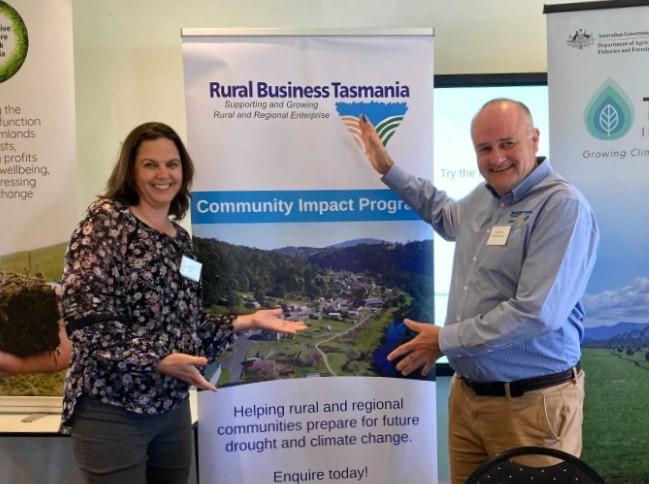Media releases: 8 October 2024
FRRR and ARLF (Australian Rural Leadership Foundation) are pleased to release the mid-term evaluation report for the Helping Regional Communities Prepare for Drought Initiative (HRCPDI) – a $29.65 million initiative funded by the Australian Government through the Future Drought Fund (FDF).

Prepared by Nous Group, the report confirms good progress is being made towards strengthening community capacity and the social resilience of agriculture-dependent communities to prepare for the impacts of drought.
According to Nous Group’s interim evaluation, the combination of the five streams of the Initiative, which include grants, leadership development activities, including mentoring, an online network and access to expert advice, are beginning to build community capacity and resilience to the impacts of climate change and drought in more than 250 locations across Australia.
The FDF HRCPDI is being delivered jointly by FRRR and ARLF. Activities in the 16 months to April 2024 included:
Among the findings is that the HRCPDI’s design, flexible implementation and a strong commitment to continuous learning and quality program delivery have supported success so far. The report has found that the design of the Initiative acknowledges that there is no one size fits all approach and provides communities the flexibility to implement or access diverse activities. These activities include events to strengthen social connection and counter isolation, delivering training that upskills the community so they can thrive before, during and after drought, building community infrastructure that enables communities to meet and interact, investing in local leadership, delivering mentoring programs or expanding the base of volunteers in a community or region.
The evaluators consistently heard from stakeholders how critical it is to invest in social resilience before drought arrives. As one stakeholder explained, “By preparing our community prior to a drought event happening, we are able to practice strength and resilience…which will act as a preventative measure.”
Nina O’Brien, FRRR’s Disaster Resilience and Recovery Lead, welcomed the findings that the Initiative is on track to contribute to stronger, more resilient and empowered communities.
“We are only part-way through delivering the Initiative, but it’s encouraging to have the evaluation confirm that we are heading in the right direction.
“The report confirms that focusing on building local community capacity and resilience to drought is important. As Nous’ evaluation notes, the more capacity and resilience there is in a community, the more likely it is that a community will successfully respond to the many impacts that drought can have on regional landscapes, communities and economies.
“The report also notes that the Initiative is helping to strengthen the protective factors that insulate a community from the worst impacts of drought. There was some nice feedback too, from community groups, alongside suggestions for what it will take to keep the Initiative on track and how we can refine our approach for any similar programs in future.
“We look forward to sharing the final report at the end of next year,” Ms O’Brien explained.
ARLF’s Partnerships Director Philippa Woodhill, also welcomed the report, noting that there is still a long way to go in the Initiative.
“Our focus is increasing leadership skills within communities and creating networks, so communities have people ready to step up when they need to support one another through the next inevitable drought.
“The positive effects of the mentoring program are already being seen, with people expanding and diversifying their networks. There are still plenty of leadership activities happening across the 35 regions and we are excited about their future impact. The Drought Ready National Learning Network is really taking off too, with people sharing knowledge and nurturing connections. As Nous wrote, it’s starting to act as the connective tissue between the other elements of the program.
“We look forward to taking the lessons from this interim evaluation and working together to boost the social resilience of agriculture dependent communities.”
You can read the full report online and watch a summary of the report in this short video.

